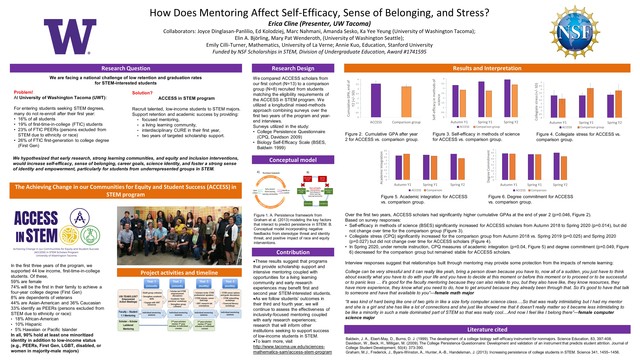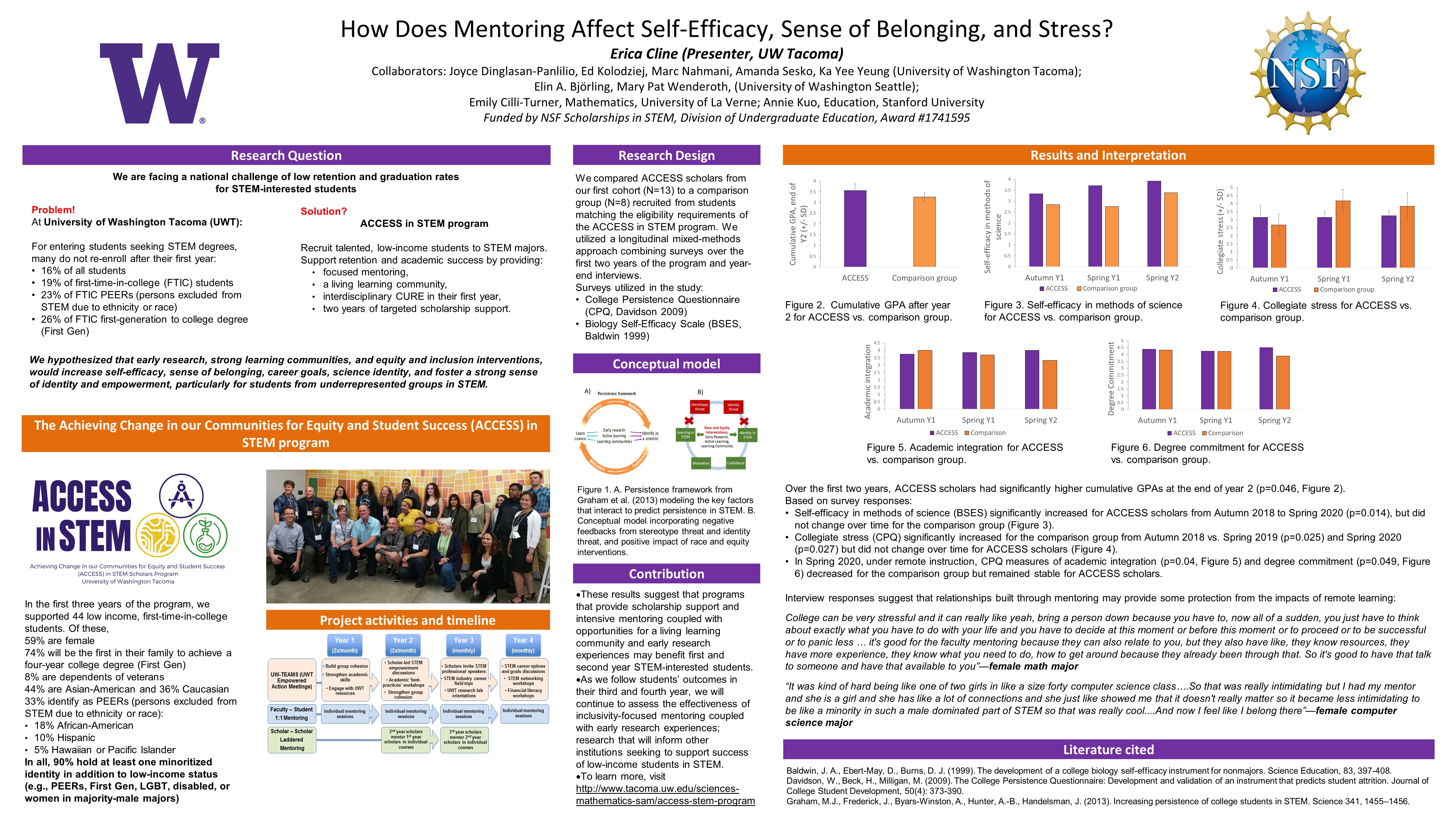Skip to main contentResource added 
How Does Mentoring Affect Self-Efficacy, Sense of Belonging, and Stress?

Full description
Video Presentation
Authors:
- Erica Cline, School of Interdisciplinary Arts and Sciences, UW Tacoma
- Joyce Dinglasan-Panlilio
- Ed Kolodziej
- Marc Nahmani
- Amanda Sesko
- Ka Yee Yeung
- Elin A. Björling
- Mary Pat Wenderoth
- Emily Cilli-Turner
- Annie Kuo, Strategic Marketing and Communications, UW Seattle
Abstract:
At the University of Washington Tacoma, we are in the third year of an NSF S-STEM project, ACCESS in STEM, that supports low income, STEM-interested students by providing focused mentoring, a living learning community, a course-based research experience in their first year, and scholarships in their first two years of college. The current pandemic upended the typical educational experience and disrupted social and economic systems; this provided an opportunity to assess effectiveness of these interventions under crisis conditions, by contrasting outcomes in Spring 2020, when our campus converted to remote instruction, with previous quarters. We hypothesized that these interventions would increase self-efficacy, sense of belonging, career goals, and science identity. We compared ACCESS scholars (N=13) to a comparison group (N=8) recruited from students matching the eligibility requirements of the ACCESS in STEM program who consented to participate in the study. We utilized a mixed-methods approach combining surveys with interviews. Over the first two years, ACCESS scholars reported higher self-efficacy in STEM and lower collegiate stress than students in the comparison group, and had significantly higher GPAs. In Spring 2020 (remote instruction), STEM academic integration and degree commitment decreased for the comparison group but remained stable for ACCESS scholars. These results suggest that programs that provide scholarship support and intensive mentoring coupled with opportunities for a living learning community and early research experiences may benefit first and second year STEM-interested students. Interview responses suggest that relationships built through mentoring may provide some protection from the impacts of remote learning.Poster PDF
View a PDF version of the poster in Google Drive to enlarge the image or download a copy.
Comments
The presenter for this poster will be available to respond to comments during Poster Session 1 on April 20, 2:00-2:50 p.m.Comments
to view and add comments.
Annotations
No one has annotated a text with this resource yet.
- typeImage
- created on
- file formatjpg
- file size3 MB
- publisherUniversity of Washington
- rights


